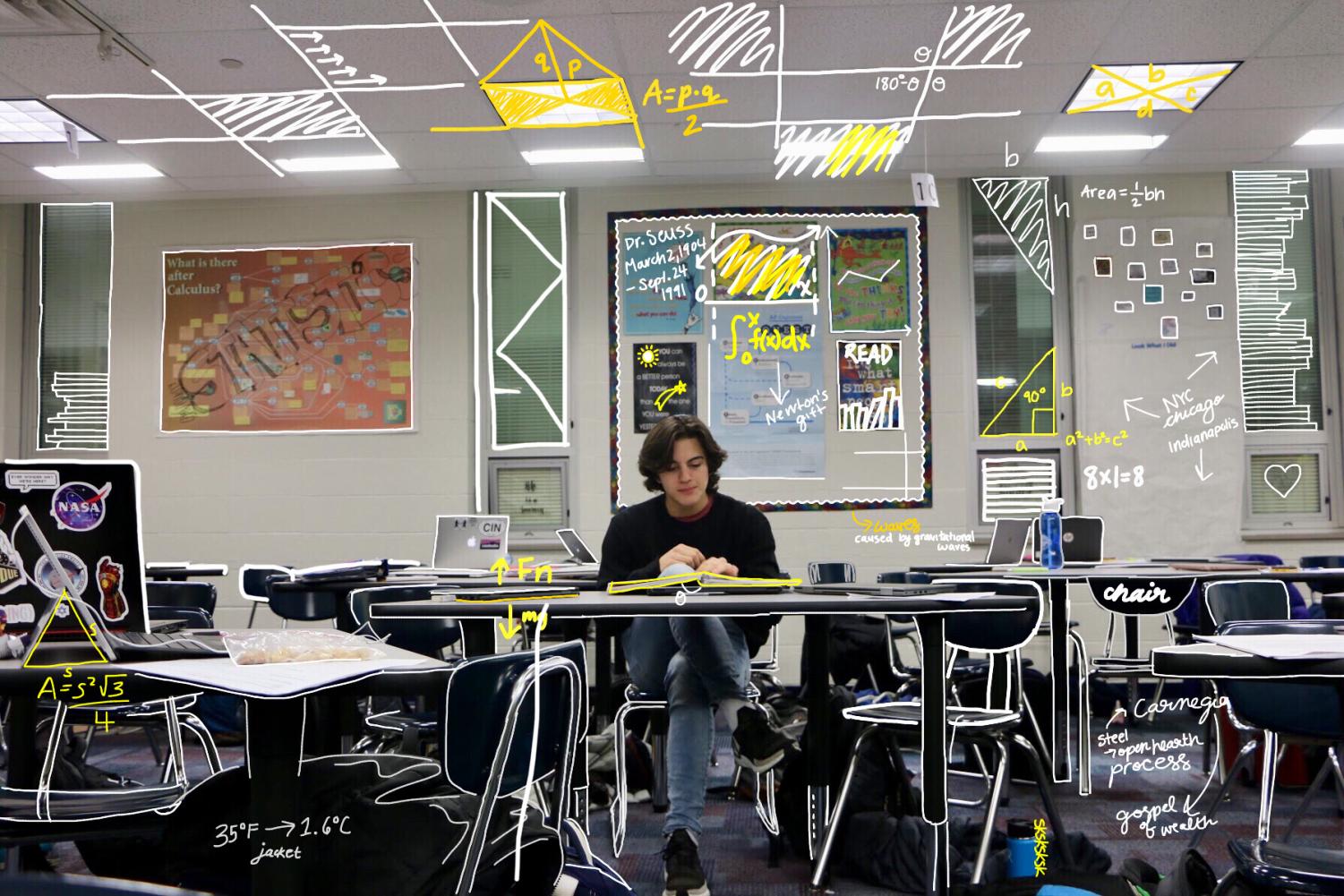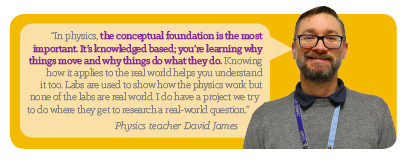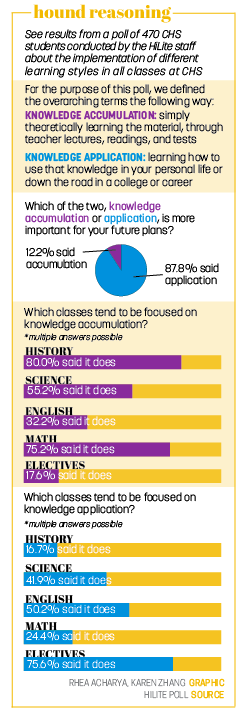Your donation will support the student journalists of Carmel High School - IN. Your contribution will allow us to purchase equipment and cover our annual website hosting costs.
With scheduling for next school year underway, CHS classes attempt to combine benefits of knowledge acquisition, real-world application
January 23, 2020
Senior Ruby Sanders wants to be an ecologist when she leaves high school. When she was younger, she loved being outdoors and was deeply fascinated by the inner workings of nature. Ecology seemed the natural course of action, a culmination of her lifelong curiosities.
Already, Sanders takes elective classes, such as botany, to hone that interest. Her schedule consists of mostly IB classes, in accordance with the requirements for an IB diploma, and has found herself using the knowledge and skills from the classroom in her life, such as in her job at Conner Prairie, as well as in pursuit of a career in ecology.
One of the classes Sanders has to take to fulfill an IB-diploma requirement is IB Mathematical Applications and Interpretations, in which students—on top of learning a wide variety of math concepts—are able to choose their own research projects and apply what they have learned to a topic of their interest. Sanders saw her chance; her project focuses on ecology, and she has been using the skills she learned in her math class to study the correlation between Lyme disease and the deer population.
Sanders said although she is required to take the class, her interest was additionally piqued by the unique learning environment, and the way it balances traditional, knowledge-acquisition-based learning with the application of that knowledge in a real-world context.
“It’s a different learning style than most math classes; it’s more independent and more ‘you will do the work and then ask the teacher for questions,’” she said. “You don’t get a packet and fill it out with your teacher. She just kind of gives you the unit and says, ‘Okay, here you go.’”
According to Assistant Principal Valerie Piehl, the district is making a bigger push to implement that type of independent learning in classrooms, adding a project-based learning unit to biology classes and focusing more on analysis and synthesis of documents and information in social studies. More classrooms are now using the workshop model, an increasingly popular teaching method focused on letting students be creative with and responsible for their own learning as well as encouraging students to lead their own discussions, is used throughout the district. It allows for students to practice problem-solving skills and learn how to communicate with their peers.
“It’s something that’s very heavily (based) around the idea of giving students student-to-student conversations,” Piehl said. “So, (it’s) giving students a problem or a topic and having them talk with each other and try to wrestle with that, discuss it and share ideas or analyze it, problem solve (and) try to come up with thoughts or solutions (with) the teacher stepping back for a little bit and letting the students work through that process.”
Sophomore Leo Han is an introduction to engineering and design (IED) student who said he hopes to go into a field relating to technology and engineering. IED is a Project Lead the Way (PLTW) class which focuses on project-based learning. Han said in the first semester, students created toys, arcade games and egg-protective vehicles.
“I think you learn a little bit more (in these types of classes); the information sticks with you more. You’re definitely going more hands-on,” Han said.
Many students would be inclined to call this type of learning “real-world application.” Piehl, however, said it is important to be aware there are often misconceptions surrounding the term.
“It’s not memorizing names, dates, facts or formulas. It’s taking information and then applying it, synthesizing or analyzing that information and using it in a new way. I think it’s important to know when you say ‘real-world,’ there’s lots of jobs in the real world,” Piehl said. “I think there’s this misperception that something isn’t real world if it’s not a trade or an actual experience outside of the classroom, (but) there are lots of kinds of things in class that can lead to lots of different jobs.”
Along these lines, senior Kieran Thomas said he feels that much of what he learns in his AP Statistics/AP Capstone Research block class and IB Business Management class will help him succeed in his future job, which he said he hopes to be related to business.
“The research-based writing that you learn in Capstone is actually really helpful for how you’re actually going to be writing when you’re in a job, especially in the business world,” he said, “because when someone is hired to conduct research to be able to draw conclusions that will eventually lead to profitable business avenues, you’re not going to be writing about literature.”
Sanders also said she is being prepared for life after high school through the classes she’s taking. In the spring, she said her math class will focus on mortgaging, handling credit cards, budgeting and other ways of managing money.
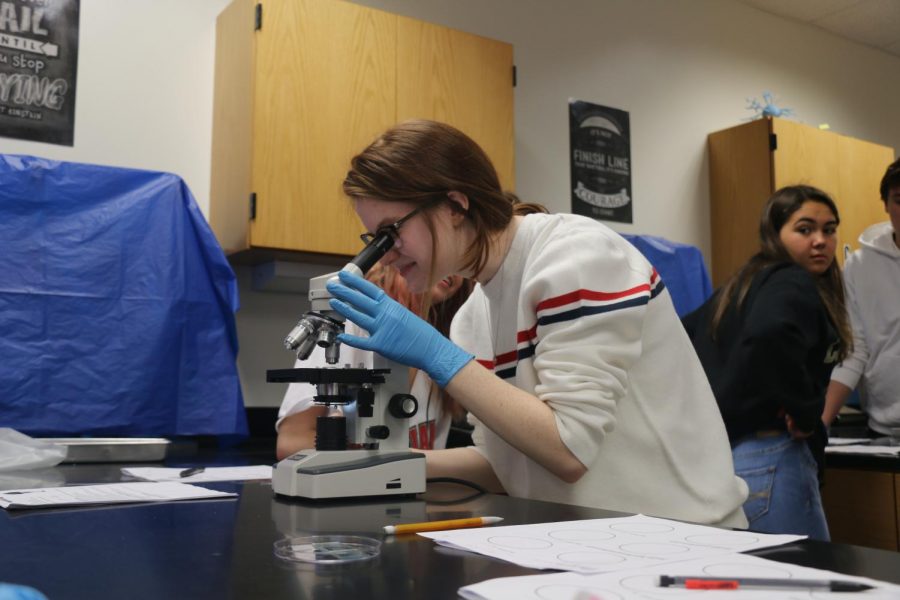
“What we’re doing in IB is going to help a lot with learning how to make a financial budget during college, and then after college as well,” she said. “Additionally, we’re going to be learning a little bit about mortgages. So when we get our first house or our first apartment we’ll have some background knowledge in order to sufficiently be able to do those types of things.”
Although Han, Thomas and Sanders all said they enjoy the project-based and student-led classes they have taken and are currently taking, they also said it is important to have a balance that includes traditional, knowledge-acquisition style classes. Moreover, Piehl said she feels that balance is needed to both develop a foundation of understanding and be able to apply that understanding to the real world.
“There needs to be, sometimes, some knowledge acquisition in order to get to that level of synthesis, analysis and application. You’ve got to have some basic understanding of what’s going on, or what the processes are, what the steps are, that sort of thing,” Piehl said. “I think what we want to do is make sure we’re not staying at that level, and just being in that place all the time. That we are pushing into that next step and getting into that synthesis and analysis and application and connections to the real world, and making it clear to students where those places are.”
Thomas said the benefits from his previous traditionally-taught courses are already apparent.
“Definitely just looking back at my writing from one or two years ago, it’s gotten so much better because of the traditional courses I’ve taken, and I think that’s valuable,” he said.
Additionally, Han said for certain people, these knowledge-acquisition-based classes can be better suited to their specific learning styles and preferences.
He said, “If you like reading more and taking notes, if you learn better that way, traditional classes are geared toward you.”
Sanders added that traditional-style courses can be especially helpful while building foundational skills.
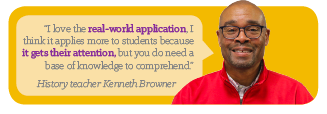
“I definitely think there’s a lot of pros, especially in the earlier years of development, because it’s mostly about perseverance, problem solving, trying to figure out how to do this, how to collaborate with others (and) how to accommodate for certain situations,” she said.
Piehl said there is still work to be done, not only in creating a greater balance between knowledge-acquisition and real-world application-focused classes, but also in helping students understand how the things they’re already doing in the classroom can be used in the real world.
“We’ve done some things with guidance with Naviance this year to try to help students have some more awareness of careers and see where those applications are. You may not be thinking ‘(Is) this related to certain career fields?’” Piehl said. “But if we’re not making that connection clear to students, then I think we’re missing an important opportunity to say, ‘Here’s the kinds of jobs you could do with this particular type of activity, skill or information.’”
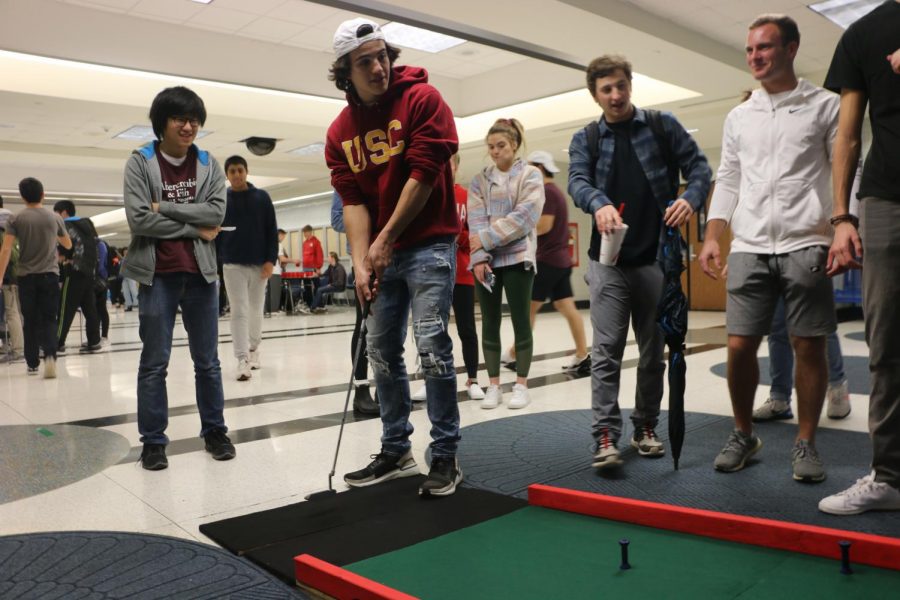
Senior Kieran Thomas plays a game during the Stats Carnival. It was a required activity for his AP Stats/Research Block class.
Sanders said when trying to find the right balance of traditional and application classes in your schedule, it is important to learn skills and develop interests for your future.
“Make sure that what you’re doing in school excites you, and make sure (to) take electives that interest you,” she said. “If it is a core class that you don’t particularly find a lot of interest in, try to do papers around topics or things that are interesting to you, in order to try to take skills that you learned in those classes and apply it to your own interests.”
To learn about classes offered at J. Everett Light Career Center that provide lots of real-world application opportunities to students, click here.
To learn about a specific cosmetology student’s journey with JEL and the CHS curriculum, click here.
